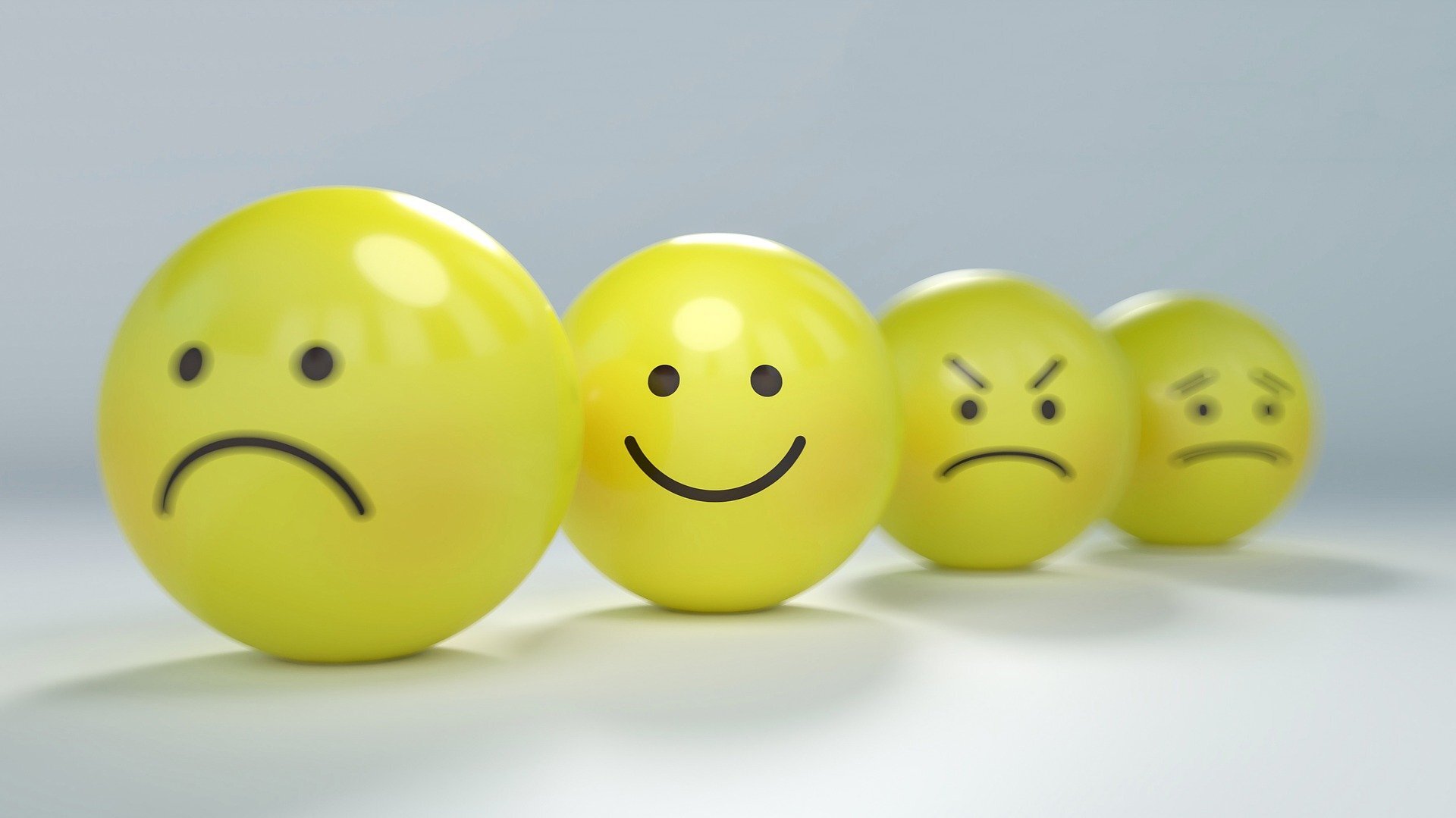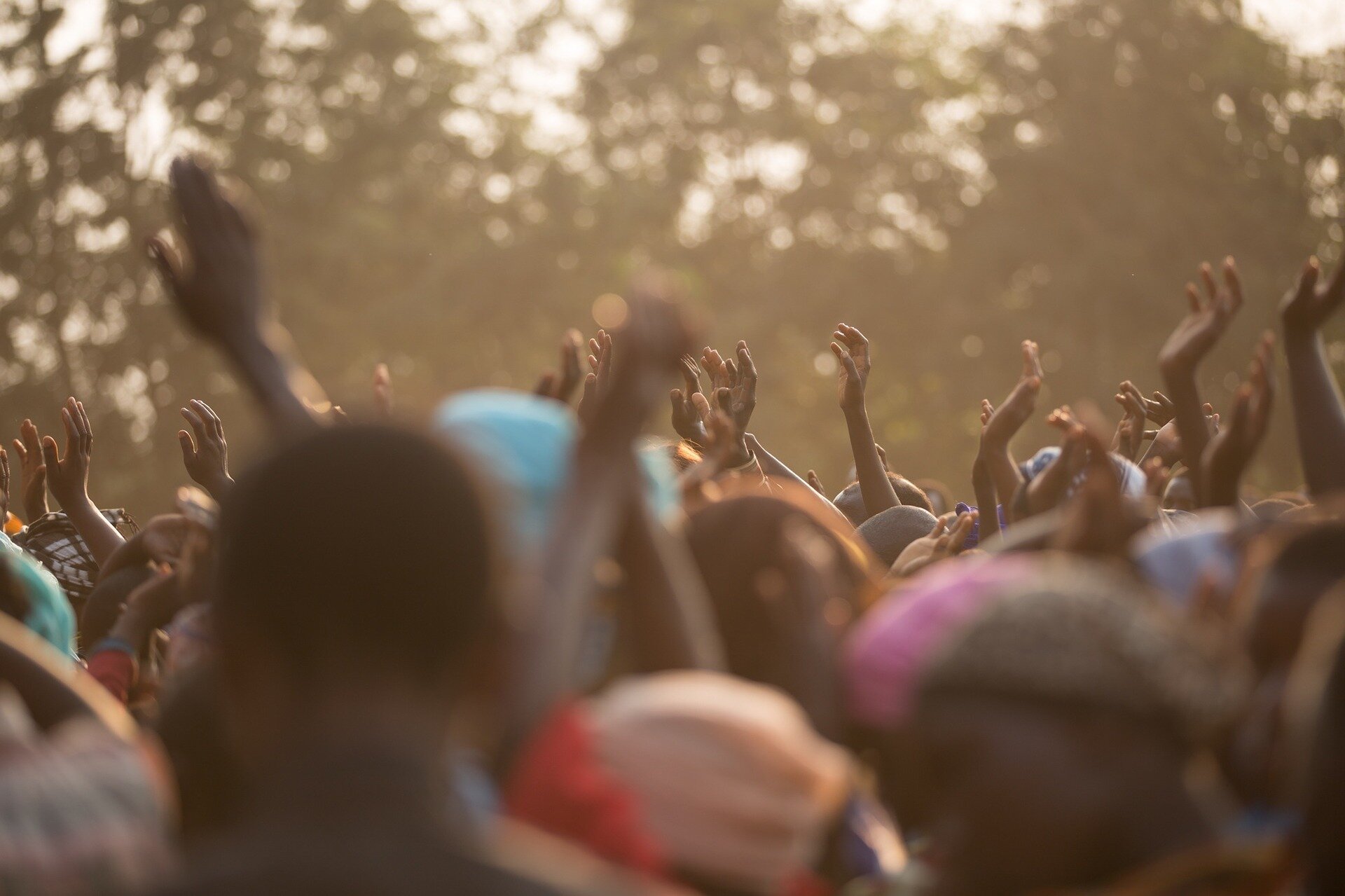BY DANIELLE ELAINE
What is your spiritual background?
I was born into a Christian family. I come from a long line of preachers and ministers.
Do you view writing as a kind of spiritual practice?
Writing is absolutely a form of spiritual practice, because creative energy is the most powerful energy we have. I believe all art forms are a method of spiritual practice because what manifests comes from an ethereal place. Yet, somehow, we all find a piece of ourselves in others art, writing, music, etc. Creating is cathartic - it offers a healing release of things that need to be purged, or things that need to be birthed.
Image by Zoltan Matuska from Pixabay
What spiritual disciplines do you connect with most?
I don't know if there is a specific discipline I could name. As I've been working with my ancestors more and digging deeper into my lineage, I've discovered there are many things that resonate with the ways that feel most comfortable in expressing and building my connection with The Creator and my “tribe on the other side.” From Reiki, Herbalism, some hoodoo and shamanism, I ask for guidance and do what feels right.
What experiences have most shaped your spiritual life?
I would say my spiritual life has been consciously shaped by the hardships I’ve faced. Being homeless, hopeless and broke, and seeing others living with supposed ease. It made me say, “Ok, I know better is out there and it's possible, but why isn't it happening for me?” That question led me to seek God on a deeper level, because I figured there was obviously something I was missing, and I needed to fine-tune my antennas to better navigate life.
How can we deepen our connection to spirituality?
The best way to deepen your connection to spirituality is daily prayer and meditation. Daily prayer and meditation are going to help you connect with your own inner voice and intuition to create a clearer channel between you and your Creator. You will also be able to build a more authentic connection with yourself, which will allow you to release social constructs that you've been conditioned with. Once you release these things, you will be able to live more authentically and freely.
What can I do or learn right now to aid my spiritual growth, evolution, and development?
Meditation, meditation, meditation. Knowing yourself, your desires, your dreams, likes and dislikes outside of social conditioning and the need for social validation will free you in ways you wouldn't imagine. When you know yourself and your inner self, you can sharpen your discernment. And when you're discerning, you can save yourself from a lot of inner and outer low-vibrational influence.
Image by Phramaha Narinthep Thongchai from Pixabay
How would you help someone with my manifesting?
Some of my recommendations regarding manifesting would be to use your creative energy or sexual energy. Within yourself or with a partner, you can set an intention, and then masturbate while holding that intention, until you climax and release the energy. The key to manifestation is incorporating all five senses into your desire. What does it look like? What does it feel, smell, sound and taste like? The more detailed you can be, the better. When your desire is in alignment with what you say, do, feel and think, you can clearly draw it into your reality. However, if you are confused or sending mixed signals, then you will get just that.
“The key to manifestation is incorporating all five senses into your desire. What does it look like? What does it feel, smell, sound and taste like? The more detailed you can be, the better.”
What do you do when you feel scared or overwhelmed by spiritual guidance?
I do not fear the spiritual realm, because I know and trust that I am always protected and that things are always working for my greatest good in all ways. However, journaling, downloads, taking baths, grounding practices and meditation help me work things out when I am feeling overwhelmed by spiritual guidance. I am very honest in my spiritual practice with my team and I speak to them in prayer and aloud throughout the day the same way I would anyone else.
How would you handle a situation where you’re growing spiritually, but your friend or partner isn’t?
This can be tricky, because all things work in divine time and order. And in some cases, one partner might be on the path of evolution and ascension and can act as a catalyst for the other person to begin their journey. However, if one is growing and shedding and becoming their highest and best self, naturally the relationship will become uncomfortable for each person, because they are no longer aligned with one another. When you find yourself out of alignment with people, places and things, it is always best to move on from them willingly before spirit forces you.
How do you know if you’re hearing the truth in meditation or If it’s just your own ego speaking to you?
Discernment takes practice. I always recommend beginners start with affirmations they can repeat to focus their mind. It's hard to describe, but eventually, you just know. And in those moments you are questioning yourself, ask for more clarity or a more concrete answer. A lot of the questioning and second guessing we subject ourselves to is rooted in feeling that we are not worthy or deserving of the things desire. Once you kill that lie - the voice telling you that you're not good enough or that good things can't happen to you - you will begin to see and feel a change.
How can a person strengthen and develop their intuitive gifts?
Intuitive gifts can be strengthened through meditation and prayer daily, of course. Getting more acquainted with your inner self, but also in those moments you hear last minute advice, practice taking it. Think about the times when you're about to walk out the door and something tells you to grab an umbrella, but you choose not to because you checked the weather and it said nothing about rain. But then you leave and it rains while you’re out. Those are the moments your intuition - your higher knowing - is speaking to you, trying to help you navigate life. Just listen. Silence your mind, silence logic and reason, and just trust it.
Image by Cindy Lever from Pixabay
Is suffering a necessary part of the human condition?
I don’t believe so. I think it is a condition we have been convinced is necessary, because we have been socialized to think that good things are only earned or “deserved” through strenuous effort and labor, especially melanated people. I believe that life has its highs and lows. However, the lows do not have to be seen or felt as catastrophic occurrences if we shift our perspectives, free ourselves from social constructs, and listen the first time The Creator and Our Tribe on the Other Side tells us something.
Does hardship make a person stronger? If so, under what conditions and at what point is it too much hardship? If not, what makes a person stronger?
I do not think hardship making one stronger is a concrete concept in itself. I think that yes, it can make one stronger at times, if someone is able to be subjective and learn from their mistakes, take accountability and responsibility for their actions. I do not think there are any set conditions or a one-size-fits-all situations though, because we all have different thresholds of endurance. I do believe overall that one's will is the only thing that can truly shape their strength. What are you willing to overcome? What are you willing to work for? What are you willing to change and let go of to become who you want to be? What are you willing to do or sacrifice to get where you want to go?
What is the best way for a person to attain happiness?
The best way for someone to attain happiness is to decide they want to be happy. Once you make the choice, you just have to fine tune each moment in your reality to fit what you’ve decided happiness is to you. Get detailed and specific about what your version of happiness is, down to the people, experiences, places and be sure to include all your five senses as you design your new happy reality. Once you've got that mapped out, denounce and stay away from everything that doesn't look like the world you've created.
Image by Jackson David from Pixabay
From what or whom do you draw the strength to endure a difficult situation?
I would have to say myself and the God within. I’ve been through a lot, so I know that hard times come again - it's only for a time and will not last. I also know that I am not alone through hard times and that everything is only for my greatest and highest good. I am not the type to focus on the problem, but a solution. Sometimes, the solution is taking my hands off the wheel and trusting that I am taken care of always in all ways.
What is something you consider to be a great personal success? Why was it so significant?
I never stop to think about my accomplishments, so it's hard to say. There is nothing in particular that stands out right now. I think a part of that is that my goals are constantly changing. I've just always set a goal, reached it and moved on to the next thing.
What is the key to maintaining balance in your life?
The key to maintaining balance in my life is mom breaks. Taking time just for me and absolutely keeping a schedule, writing things down and having a general routine.
Can we ever believe someone when they say their intentions are different from their actions?
I think this best assessed case by case, because there are instances where people genuinely have trouble communicating and interacting with others, so their intentions may be lost in translation. However, if what someone says is consistently misaligned with what they do, and you've tried to communicate with them to no avail, do not subject yourself to the confusion any longer.
Where does your self-worth come from?
My self-worth comes from my connection to the ethers. Knowing I am an ancient cosmic being, a child of The Creator. In those human moments where I begin to compare or get social media envy, I remind myself about the things I truly value and want outside of social optics, perceptions and validation.
If you could teach the entire world just one concept, what would it be?
Probably to just mind your business. When you focus on becoming your greatest and highest self, that increase in your frequency reverberates and changes those around you. Yes, step in to save an elderly person or speak up when you see an injustice. However, there is no reason to pass judgement on anyone for doing something you don't agree with. What you give your energy and attention to multiplies, so focus on yourself.
Image by Gino Crescoli from Pixabay
What do you feel most grateful for in your life ?
I am most grateful for my growth and healing. The changes I have made within have profoundly impacted my family and I'm grateful for the ability to directly affect and curate my reality as I desire.
Hailing from New Jersey, Danielle Elaine is prolific writer with a love affair for words. She is a self-published author of the book, Love Letters I Never Sent. Although she specializes in a wide range of poetry, she has gained experience writing for print and online publications such as KONTROL and KONTROL Girl Magazine, MommyNoire, MadameNoire and more. On a quest to pursue a passionate and purpose driven life, Danielle found herself on a journey of self-healing.
Through her rediscovery of crystals, she found herself following universal breadcrumbs to spiritual evolution, energetic growth and healing. Today, Danielle takes comfort in a fluid existence. As a Mother, creator, healer, vessel, she happily greets each day using the spiritual guidance and tools imparted to her. As a healer, and vessel she only seeks to show others, especially women and children, how easily they can free themselves from social shackles weighing down their physical, emotional, and spiritual bodies.





















































